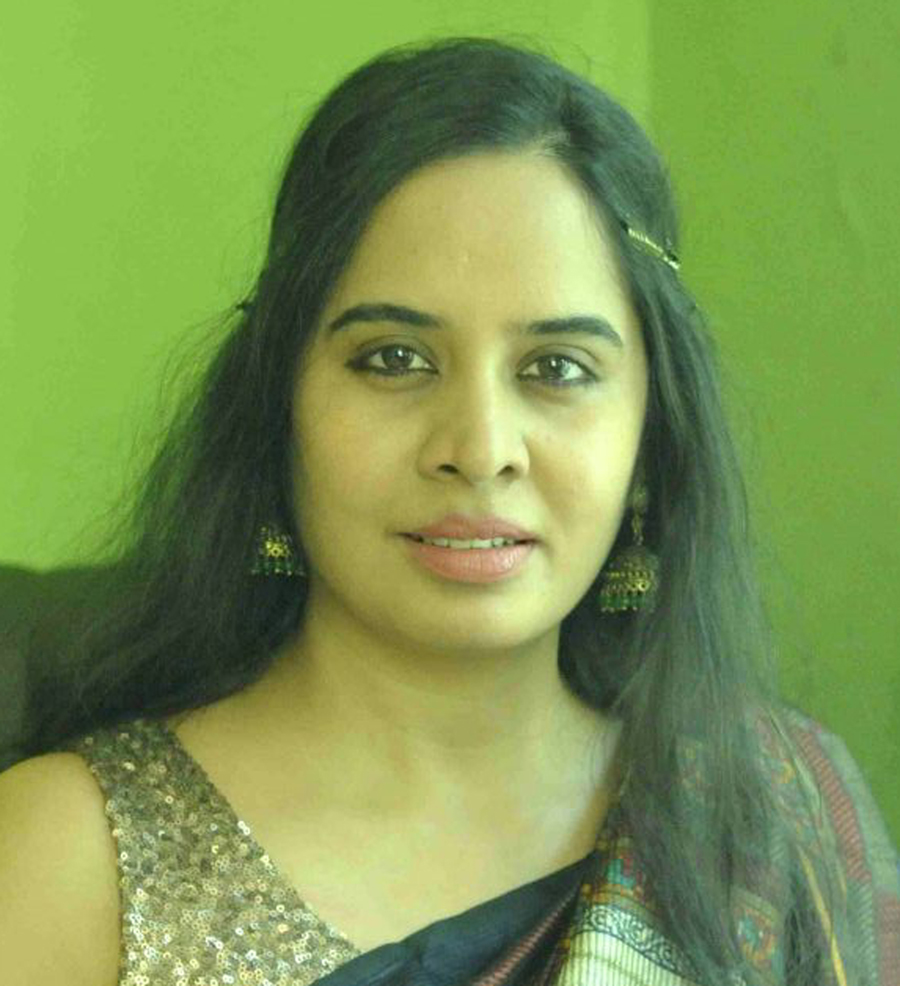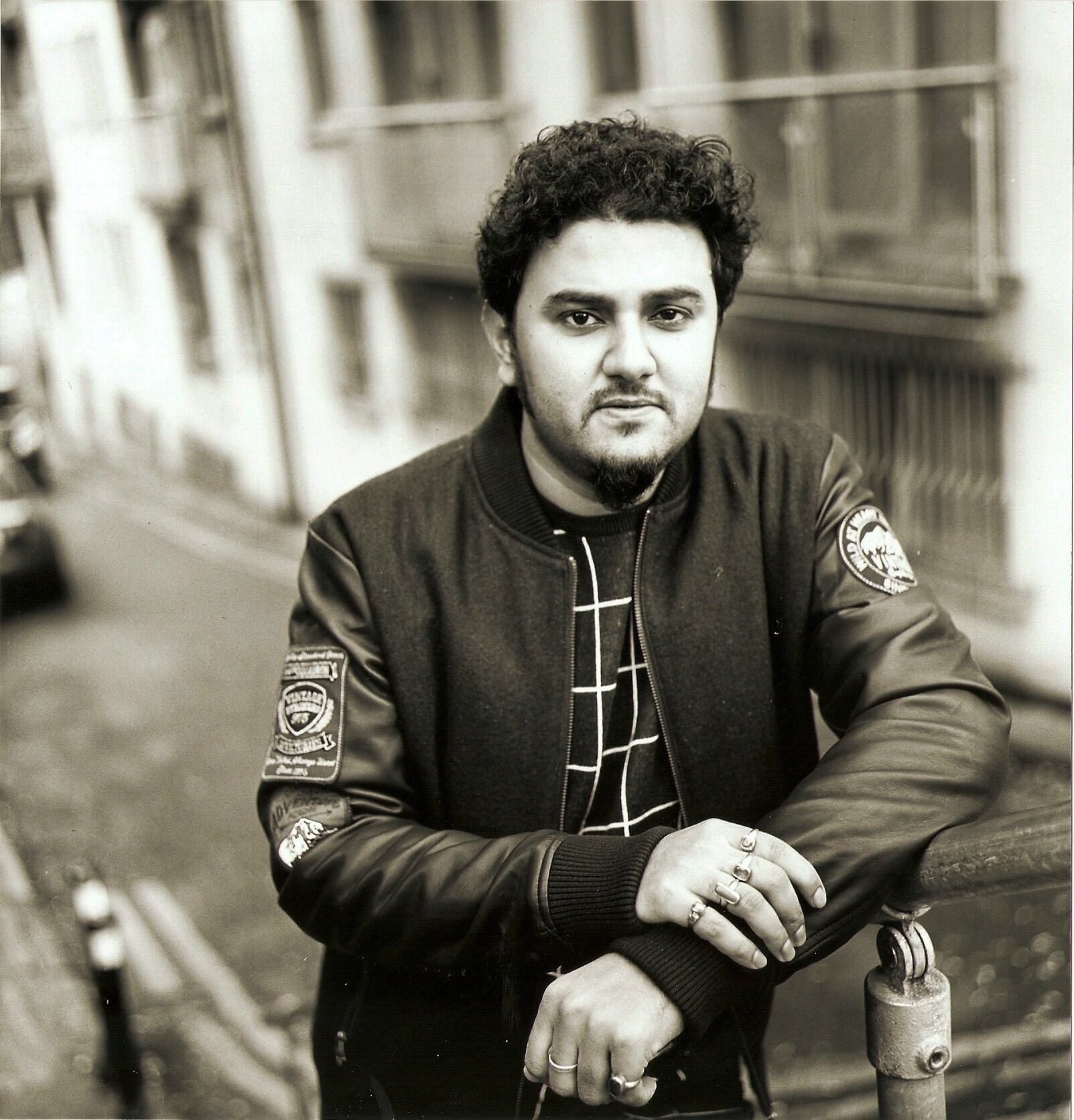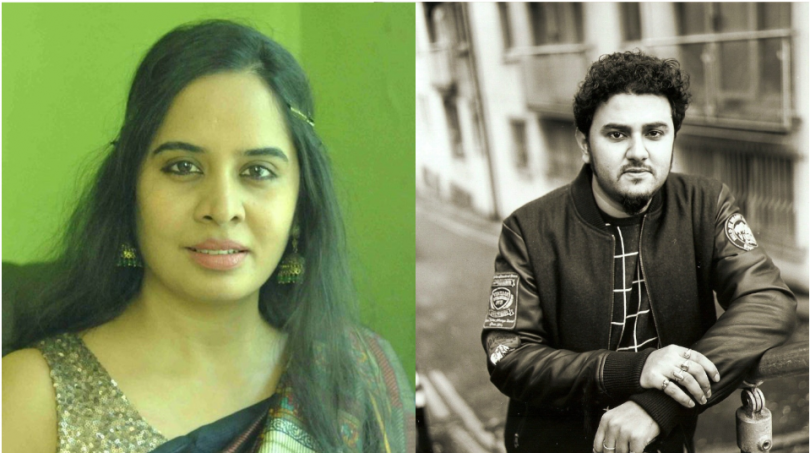Immár több éves hagyomány, hogy a FISZ-táborba külföldi szerzőket is meghívunk, az elmúlt években lengyel, skót és francia költők is részt vettek műfordítóműhelyeinken, ahol a meghívott szerzők egy-egy magyar szerzővel párban fordítják le egymás műveit, és ismerkednek a kortárs fiatal magyar irodalommal - a zárónapon ízelítőt adva a táborlakóknak az elkészült fordításokból is. Az idei évben a román-magyar fordítóműhely mellett Indiából is érkezik két szerző: Rochelle Potkar és Sonnet Mondal.
Rochelle Potkar

Rochelle Potkar (1979) Goán, Kalyanban született, jelenleg Mumbaiban él. Indiában és Ausztráliában szerzett kereskedelmi diplomát, majd 27 évesen felhagyott az üzleti élettel, és az írás felé fordult. Egy novellás- és egy verseskötete van, második verseskötete idén májusban jelenik meg Paper Asylum címmel. Számos fesztiválon olvasott fel és folyamatosan publikál különböző folyóiratokban; részt vett az Iowa Nemzetközi Íróprogramban és a Charles Wallace Writer's Fellowshipben, ezenkívül több irodalmi kitüntetés díjazottja.
Biography:
Author of The Arithmetic of Breasts and other stories (fiction), Four Degrees of Separation (poetry), Rochelle Potkar is the alumna of Iowa’s International Writing Program; and Charles Wallace Writer’s fellowship, Stirling. She is the winner of the 2016 Open Road Review contest for her story, The leaves of the deodar. Her poem, The girl from Lal Bazaar was shortlisted for the Gregory O' Donoghue International Poetry Prize, 2018.
Her latest book of prose poems is Paper Asylum (Copper Coin Publishing, May 2018).
Website: https://rochellepotkar.com
Gathering
My uncle had a strange habit of gathering people.
Not less than 25 he would take on an outing.
Like: Aunty Perpetual with her breast cut
who would lift her t-shirt every time to show us her story,
Avo who would stand and take a piss like a giraffe,
Cousin Milton who would talk about everyone’s pants and panties,
Uncle Kaitaan who divorced his wife just before he turned blind
and regretted it in hindsight,
or Aunt Bertha who loved her husband so much
they still bathed under picnic showers and sagging flesh of 40 years
(a couple that bathes together…),
Aunt Nysa who starved to look thin and ended up haggard
because one kg less is not a year younger,
and Aunt Alice who was divorced when that was still a stigma.
Uncle Wilfred had one phrase for every occasion
in lyrical Konkani
aimed to marginalize his opponents
who had marginalized him because of his poverty.
My father would step further and further away
from the kids cycling,
as he would from the circle of life and everyone’s life cycles.
A few spare uncles would always sit on plastic chairs
with the chauffeurs and gardeners
inaugurating alcohol bottles.
Aunt Cassandra would be on a fertility pill
counting milestones of other’s children and
practising her lotus-like parenting wisdom.
Matilda aunt orbited around with curries, sorpotel,
and cutlets fried in rava and cheap sunflower oil.
People relished her friendship-offerings
but never invited her for their parties.
And the servants!
Equal of equals on the dinner plates
with their heads full of lice,
they wore shorts, and their bras outside their t-shirts.
They smoked beedis, hovered around the male cousins
with bronzed cricket thighs,
and giggled at cousin Milton until they were molested,
and shunted home.
My aunty – Uncle’s wife - would be interested
in every soup and its recipe,
never mind which house or hotel we were in.
Nothing escaped her sight
even in daily novenas, angelus, or rosaries:
the peas-in-the pulav bond between Martha and Rosie,
the filigreed work on Avo’s gold bangles,
the salary Jimmy uncle earned,
the marks Edith brought home.
My uncle would cut long journeys short
with church mouse jokes on trains to Goa
with break journeys at Miraj.
He would click pictures of Dudh-sagar
with as much panache
as Uncles Fred and Tony beat up their wives
and Aunty Emma stitched her husband’s pocket
from the opening outside
so he wouldn’t lend any more money.
Every time Edith topped her class
there would be mayhem for all of us - the other children.
When she got a job with a heavy pay packet,
my aunt searched for zeros in every person,
like ingredients in a soup.
We had neither high marks nor the money.
We were the pariahs, patrons of penury.
The day never belonged to us
as our aunt whipped us with her blue-eyed gaze
in this room full of people.
Transmogrified
He was first a snake and was in love with her - a she-snake. And then he molted and after he molted he was a turtle and he met another she-turtle and fell in love with her. When he de-shelled after years, he became a four-legged animal, black spots sprouting over his fur, and he fell for a leopard. He moved this way through the jungles, the savannas, the deserts, the skies, through the oceans, the air, the land and beneath it, changing and changing and meeting and falling in love with new she-species.
The lovers he left behind did not change. They were who they were. The same.
They were individualistic so to speak, but now they were also heart-broken and full of hate for him – the one who had left in the middle of, sometimes, passionate love-making.
They had no idea how it was to live so many lives in one life like him.
To take no breaks with rebirths from being mosquito to man.
Sometimes evolution and progress is so fast, blessings and curses are all mixed up, and One.
Sonnet Mondal

Sonnet Mondal kalkuttai születésű költő, szerkesztő és fotográfus öt verseskötet szerzője. Viágszerte számos irodalmi folyóiratban publikált és Makedóniától Írországon át Németországig és Szlovákiáig számos irodalmi fesztivál és rendezvény szereplője volt. Vendégszerkesztések mellett jelenleg az indiai The Enchanted Verses Literary Review főszerkesztője. Angol nyelven ír, verseit hindire, olaszra, szlovénra, magyarra, spanyolra, portugálra, szlovákra, törökre, makedónra és arabra fordították le.
Biography:
Sonnet Mondal is an Indian English poet, editor and has authored five collections of poetry. Mondal has read at literary festivals in Struga, Macedonia; Cork, Ireland; Istanbul, Turkey; Granada, Nicaragua; Galle, Sri Lanka; Berlin, Germany; Bratislava, Slovakia and in many festivals throughout India. Winner of the 2016 Gayatri Gamarsh Memorial award for literary excellence, Sonnet was one of the authors of Silk Routes Project, IWP, University of IOWA. One of the current directors of Odisha Art & Literature Festival, Sonnet Mondal edits the Indian section of Lyrikline Poetry Archive, Haus für Poesie, Berlin. He was one of the guest editors of Poetry at Sangam, India in 2017 and currently serves as the chief editor of the Enchanting Verses Literary Review. His writings have appeared in Kyoto journal, Irish Examiner, Rochford Street Review, the World Literature Today, the Mcneese Review, Blesok, Palestine Chronicle, Drunken Boat, Indian Literature, Asia Literary Review, Fieldstone Review, and Two Thirds North etc. He was featured as one of the Famous Five of Bengali youths in the India Today magazine in 2010, and the Culture Trip magazine, as one of the top five literary entrepreneurs of Indian poetry in March 2015. Sonnet has been in focus multiple times in the Bulletin of Ministry of External Affairs, Macedonia for contributing to international cultural exchange with Macedonia since 2011. Mondal led the Indian cultural delegation to the Ars Poetica International Festival, Slovakia in November 2016 and read at the 2017 edition of the Cork International Poetry festival, Ireland. A 2018 Writer in Residence at the Sierra Nevada College’s MFA in Creative Writing program, Mondal represented India at the 10th year anniversary edition of the International Istanbul Poetry and Literature Festival. Most recently he has conducted poetry workshops at the 2018 Galle Literary Festival, Sri Lanka in January 2018 and his works have been translated into Hindi, Italian, Slovenian, Hungarian, Spanish, Portuguese, Slovakian, Turkish, Macedonian, and Arabic.
Website: www.sonnetmondal.com
The lost mango tree
The mango tree which I reared
is lost today somewhere
in the jungle of my wishes.
I used to throw whole mangoes
in our backyard
to see them grow up into trees.
Not a single leaf sprouted up
except from a half-eaten one.
After watering it in its infancy
I became engaged
wining and dining with my life.
After years — today
a mangrove in our backyard
shaded my memories
from the hard sun of forgetfulness.
It seemed to have emerged
from the death of my cared one.
I wish I had left it
to the charity of wilderness.
Only if I were a Mad
I feel today — I could believe
in my existence if I were a mad.
My mind is being torn apart
by countless abstractions
In front of your undying spirit [sea].
Thoughts I am wary off — are invading
like barbaric clans of the Roman era
and the thick walls of my heart
would soon expose its wounds
to the axes and sickles of faith.
The only thing I fail to do is speak
and my belief boils
like confused tea leaves
on the fire of interrogations.
I feel I am born
to become conscious
and sink into the depths
of my wakefulness.
God, only if I were a mad —
I wouldn’t have to think about answers.
I wouldn’t have to inquire.
I wouldn’t have to strangle reason for faith.
Questions would have laughed at me
and I could have laughed back!
God, only if I were a mad —
Retribution would have taken birth
from the blood of sentiments
forsaking a constitution
that neither defends
nor conflicts.
